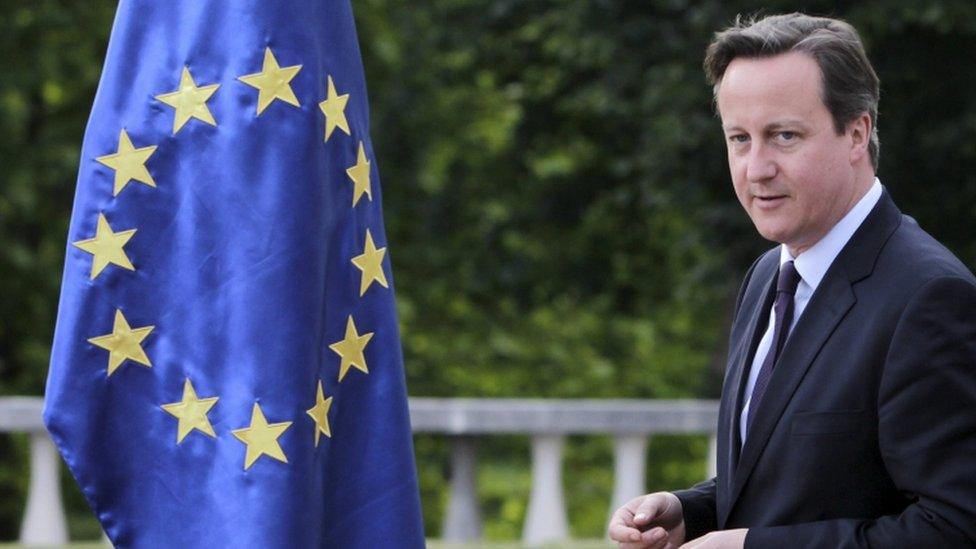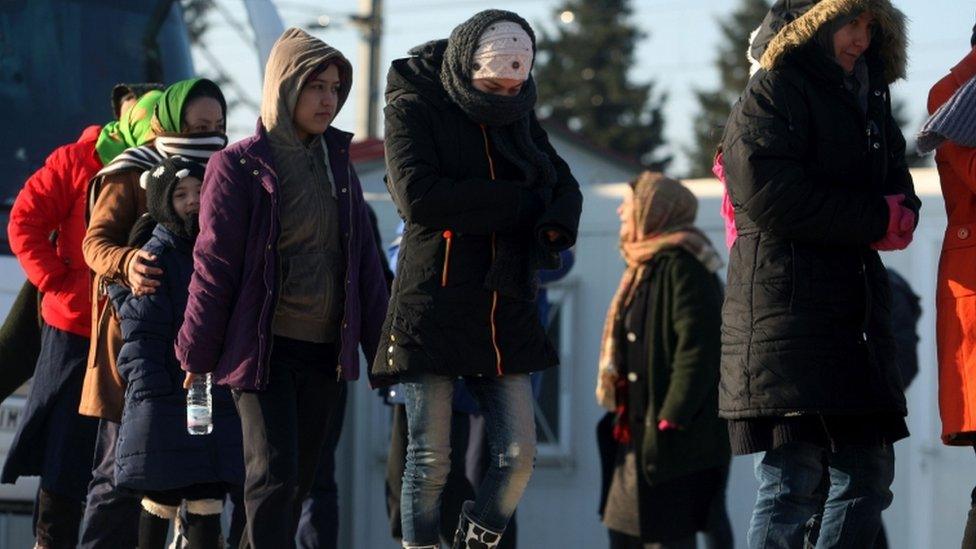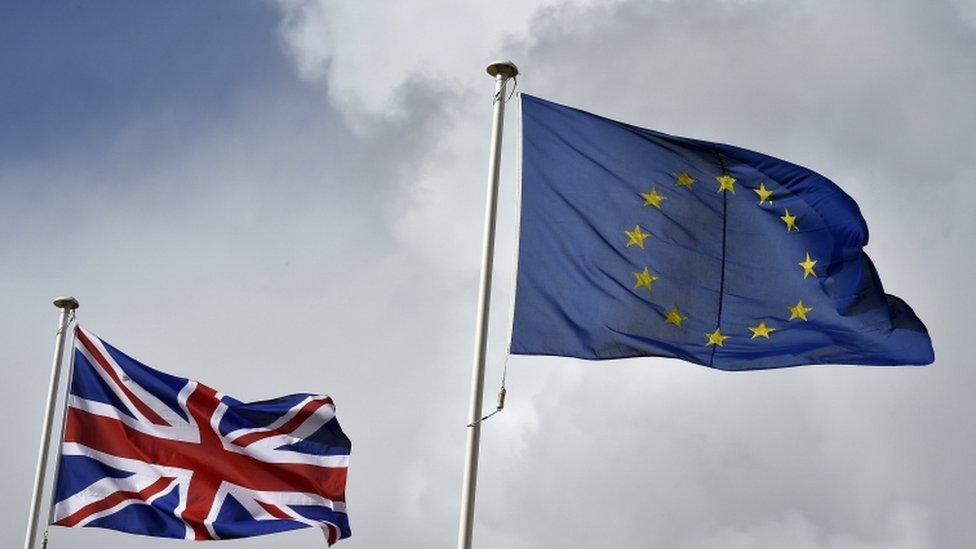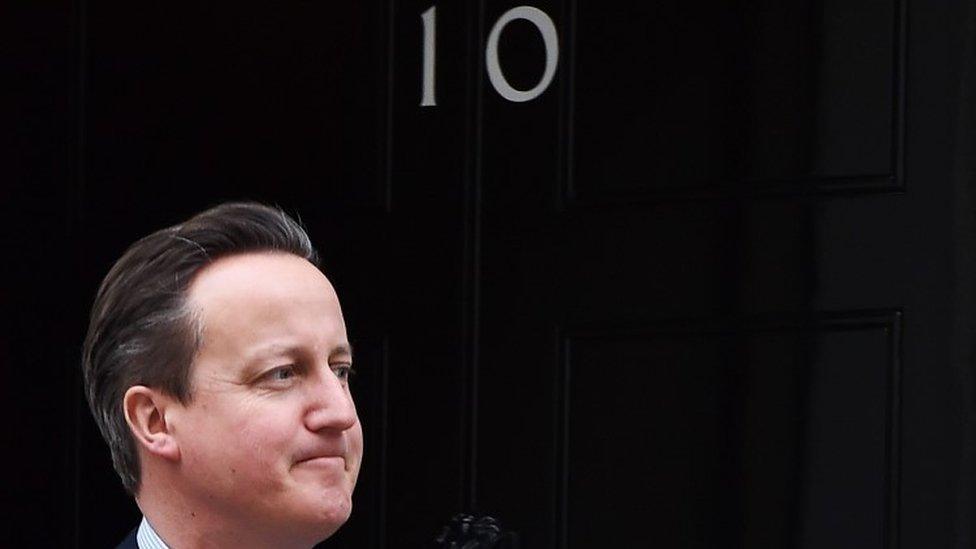EU negotiations: What are we to think?
- Published

Prime Minister David Cameron proclaimed he was not in a hurry to conclude a deal with the EU
If you'd been paying attention to the words of senior ministers in the last 10 days, you could reasonably have concluded that the prime minister was on the verge of a deal with his European counterparts that would change our relationship with them for ever.
An agreement that you would be asked to approve or reject as early as June in the EU referendum.
Last Friday, Chancellor George Osborne said the essentials were "falling into place".
Foreign Secretary Philip Hammond suggested a June referendum was certainly possible.
These were hardly noises off from ministers with no authority, or indeed, no visibility of the talks.
There was a clear, and building sense of momentum a February deal was fast becoming inevitable, with the focus in Westminster turning to what happens in the aftermath.
Holding the referendum was always going to be a gamble, but there was a building sense that a February deal was a safe bet.
But when the prime minister arrived in the freezing Alps of Davos, having departed a slightly less freezing Downing Street, he proclaimed he was not in a hurry to conclude the deal, and indeed, if there was nothing satisfactory on the table in February, then he is willing to walk away from the summit empty handed.
'Reality check'
After that, you might reasonably wonder tonight, what on earth is going on?
First, the prime minister's team calculated there was a danger in being trapped by expectations.
If ministers had carried on building the impression publicly that a deal was basically done, and then there was a last minute hitch at the summit, the renegotiation efforts would have seemed a failure.
Like all politicians, David Cameron is no fan of being made to look a fool.
But today's claim that there is no rush also suggests a reality check.
Simply, while there has been progress, the negotiations still have a long way to go.
No texts of a possible agreement have been prepared yet, even though the summit is four weeks away.
The gaps between nations on how to tighten up welfare and immigration are still vast.
I understand there's been no detailed discussion yet of how an emergency brake on the number of EU migrants moving to the UK might work, even though there is a sense in Westminster it has been put back on the table.
There's still little appetite for the prime minister's hoped for four-year ban on EU migrants claiming benefits.
While the power brokers, Germany and the European Commission don't agree on one of the few potential alternatives - altering the definition of a "worker" to be able to crack down on the number of people who are entitled to claim.

The prime minister's hoping for a four-year ban on EU migrants claiming benefits
In fact, I understand no final bargains have been struck on any of the prime minister's four areas of reform. And there are even ongoing discussions about the legal form of the deal itself.
Officials around the EU are building up to fraught talks next week, with the hope, in principle that a draft agreement will be circulated at the start of February.
It is of course true that these kinds of complicated negotiations often come together late.
And while EU leaders, the council and the commission haven't agreed anything like the final details, a lot of work has been done, and there are broad understandings of what countries' positions are.
'May take months'
There is too, in Davos this week, and around the EU, a genuine desire to help the prime minister finalise a deal as soon as possible. So, good will and political energy are still likely to push things to a conclusion soon.
But the complexity of what David Cameron is trying to achieve may take months yet.
And ultimately, it will be his calculation as to whether what the EU comes up with in a few weeks time is enough for him to persuade the public.
Getting this deal is not just about getting signatures on any old piece of paper.

Officials around the EU are building up to fraught talks next week
Of course his fiercest critics are likely to dismiss whatever he gets as a sham, a more benign view is that his hoped for changes are marginal.
But his task is to get an agreement that can convince the undecided voter that he really has got something that is going to change the way the EU works for the better.
In particular, for many voters, and Conservative MPs, he wants to show that the deal will make a difference to immigration.
If you like a flutter, a February deal is still a good bet - but David Cameron's political judgement will determine whether you can cash your chips.
- Published21 January 2016
- Published21 January 2016
